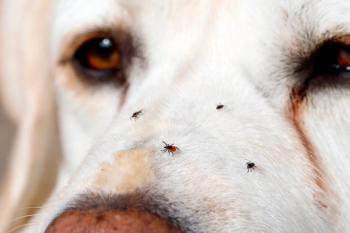
Ark. pharmacy board bars office stock compounding
Little Rock, Ark.-Leaders of the Arkansas Veterinary Medical Association weren't too pleased with the outcome of a state board of pharmacy hearing late last fall.
Little Rock, Ark.-Leaders of the Arkansas Veterinary Medical Association weren't too pleased with the outcome of a state board of pharmacy hearing late last fall.
In what Arkansas veterinary leaders allege is the first ruling of its kind nationwide, the board of pharmacy issued rules and regulations that prohibit compounding of all drugs for office stock for veterinarians, with two exceptions: compounds for use in life-threatening situations where lack of immediate product availability could cause patient harm and where no FDA-approved product is commercially available.
"What our board decided to do as a public health issue was to prevent pharmacies from compounding office stock for veterinarians," says Trey Gardner, assistant director, Arkansas Board of Pharmacy. Office stock compounding is where pharmacists compound products and sell them to physicians or veterinarians (prescribers) for use in their office on patients.
L.D. King
The new rules, according to the Arkansas state board, are in direct response to prohibitive rules on compounding published in the Compliance Policy Guide from the Food and Drug Administration last summer.
Gardner downplays the significance of the new veterinary-specific office stock rule, claiming there were only "about" two states in the United States that allow what is called office stock compounding by pharmacists - Oklahoma and Arkansas (until the latest ruling). (Incidentally, the International Academy of Compounding Pharmacists disputes this claim saying that only a handful of states don't allow it.)
"If there are pharmacies in other states that are compounding for office stock that's an issue with their state board of pharmacy. If there was anybody we knew that was violating our laws, we'd be investigating them," Gardner says.
As to the impact on veterinarians, Gardner says, "When people call us and say we're regulating veterinarians, absolutely we're not. We have no jurisdiction over veterinarians. All we have done is taken some concerns that the FDA had about veterinary compounding for office stock."
Gardner says the veterinary inclusion in the regulation was "a very small component" of the whole regulation change regarding human and animal drug compounding. "Interesting enough, we had no public comments in opposition to 98 percent of the regulation change. The only comments were from that one little line where we took out office stock compounding for veterinarians."
FDA, for the record, does not recognize office stock whether for humans or animals, according to Gardner.
Gardner adds, "One thing that got confused in this issue is the vets say we were preventing them from getting product they could sell to their patients. Well, it's against federal and state law to compound something for resale. If vets were reselling things bought from pharmacists, then we need to know which pharmacists are doing that, because pharmacists are violating pharmacy law."
DVMs incensed
Nevertheless veterinarians and compounding pharmacists alike in Arkansas are up in arms not so much because the ruling restricts compounding of drugs for food-producing animals, but because it also prohibits drugs for non-food-producing animals.
Dr. Michael David Thames, president of the Arkansas VMA and practitioner in Ft. Smith, Ark., is frustrated he will no longer be able to call his local pharmacist to prepare diethylstilbesterol (DES) synthetic estrogen capsules that he'd use to treat urinary incontinence in dogs.
"This ruling has already impacted a lot of people in the state," Thames says. "Many were getting pharmacists to get drugs that for some reason were taken off the market. Now we'll just have to get product from out of state until they shut others down."
The loophole is that veterinarians can continue to call pharmacists for individual prescriptions; they just won't be able to store product on their shelves.
Compounders in action
L.D. King, executive director of the International Academy of Compounding Pharmacists, says "It's the first time I've seen anything like this for a state board of pharmacy to be ruling on this."
King attended the hearing prior to the state board's final ruling last October and believes the board is relying too heavily on the FDA's blanket policy.
While he expects the ruling to remain in place, King says the state of Arkansas plans to form a committee to re-evaluate recently passed rules, including office stock for veterinarians. "We'll offer our assistance to Arkansas as they move forward."
More to come
Thames, says that while disappointed, he expects the move to be a harbinger of similar rulings across the nation.
"Ultimately, I think the FDA's target is to shut this stuff down all over the country. Compounding pharmacists are almost getting into production rather than script filling. The FDA does not like that because they don't have any control over it," Thames says.
While Thames agrees that strict regulations have their role when dealing with antibiotic residues in food animals, why the rules in Arkansas apply also to small animals confounds him.
To that point, Gardner replies, "When our pharmacists sell the products to a veterinarian, we don't know where they're used."
Thames counters, "The problem is this all stems from people who are not responsible and the consequences fall back on folks who are."
Moving forward
The state board of pharmacy plans to meet with the Arkansas veterinary association later this year to "resolve matters," according to Gardner. "We want to explain to them there were valid public health issues that any board is there to protect," he says.
Newsletter
From exam room tips to practice management insights, get trusted veterinary news delivered straight to your inbox—subscribe to dvm360.






